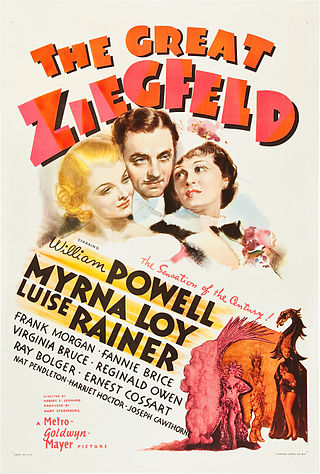
The Great Ziegfeld is a 1936 American musical drama film directed by Robert Z. Leonard and produced by Hunt Stromberg. It stars William Powell as the theatrical impresario Florenz "Flo" Ziegfeld Jr., Luise Rainer as Anna Held, and Myrna Loy as Billie Burke.
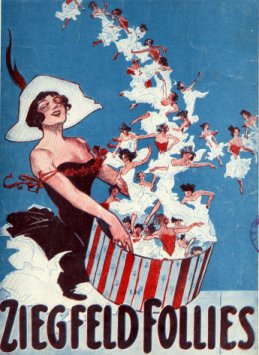
The Ziegfeld Follies were a series of elaborate theatrical revue productions on Broadway in New York City from 1907 to 1931, with renewals in 1934, 1936, 1943, and 1957. They became a radio program in 1932 and 1936 as The Ziegfeld Follies of the Air.

Mary William Ethelbert Appleton Burke, better known as Billie Burke, was an American actress who was famous on Broadway and radio, and in silent and sound films. She is best known to modern audiences as Glinda the Good Witch of the North in the MGM film musical The Wizard of Oz (1939)
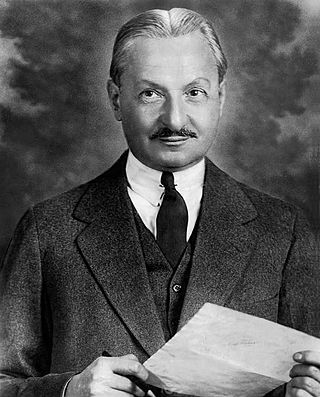
Florenz Edward Ziegfeld Jr. was an American Broadway impresario, notable for his series of theatrical revues, the Ziegfeld Follies (1907–1931), inspired by the Folies Bergère of Paris. He also produced the musical Show Boat. He was known as the "glorifier of the American girl". Ziegfeld is a member of the American Theater Hall of Fame.

Olive Thomas was an American silent-film actress, art model, and photo model.
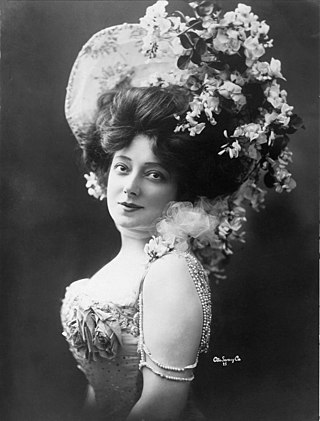
Helene Anna Held was a Polish-born French stage performer of Jewish origin on Broadway. While appearing in London, she was spotted by impresario Florenz Ziegfeld, who brought her to America as his common-law wife. From 1896 through 1910, she was one of Broadway's most celebrated leading ladies, presented in a succession of musicals as a charming, coquettish Parisian singer and comedienne, with an hourglass figure and an off-stage reputation for exotic behavior, such as bathing in 40 gallons of milk a day to maintain her complexion. Detractors implied that her fame owed more to Ziegfeld's promotional flair than to any intrinsic talent, but her audience allure was undeniable for over a decade, with several of her shows setting house attendance records for their time. Her uninhibited style also inspired the long-running series of popular revues, the Ziegfeld Follies.
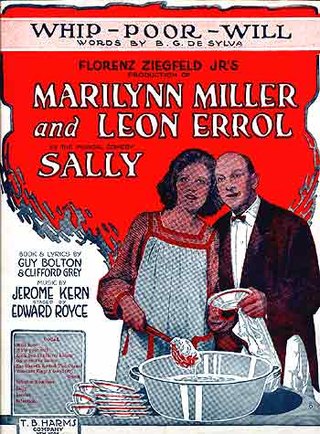
Sally is a musical comedy with music by Jerome Kern, lyrics by Clifford Grey and book by Guy Bolton, with additional lyrics by Buddy De Sylva, Anne Caldwell and P. G. Wodehouse. The plot hinges on a mistaken identity: Sally, a waif, is a dishwasher at the Alley Inn in New York City. She poses as a famous foreign ballerina and rises to fame through joining the Ziegfeld Follies. There is a rags to riches story, a ballet as a centrepiece, and a wedding as a finale. "Look for the Silver Lining" continues to be one of Kern's most familiar songs. The song is lampooned by another song, "Look for a Sky of Blue," in Rick Besoyan's satirical 1959 musical Little Mary Sunshine.

Rosemary Shirley DeCamp was an American radio, film, and television actress.

Marilyn Miller was one of the most popular Broadway musical stars of the 1920s and early 1930s. She was an accomplished tap dancer, singer and actress, and the combination of these talents endeared her to audiences. On stage, she usually played rags-to-riches Cinderella characters who lived happily ever after. She died suddenly from complications of nasal surgery at age 37.

Billie Lou Watt was an American actress. She was best known as the original English dub voice of the title characters of the 1960s anime series Astro Boy and Kimba the White Lion, the character Elsie the Cow for Borden Cheese's television commercials, and a live-action turn playing Ellie Harper Bergman on the soap opera Search for Tomorrow.

Frances Charlotte Greenwood was an American actress and dancer. Born in Philadelphia, Greenwood started in vaudeville, and starred on Broadway, movies and radio. Standing almost six feet tall, she was best known for her long legs and high kicks. She described herself as the "only woman in the world who could kick a giraffe in the eye."

December Bride is an American sitcom that aired on the CBS television network from 1954 to 1959. It was adapted from the original CBS radio network series of the same name that aired from June 1952 through September 1953.

Patricia Burke Ziegfeld Stephenson was an American author. She was known for her 1963 autobiography The Ziegfelds' Girl: Confessions of an Abnormally Happy Childhood. Born in NYC, she spent her early years in Hastings-on-Hudson, New York, later moving to California where she lived until her death at age 91.
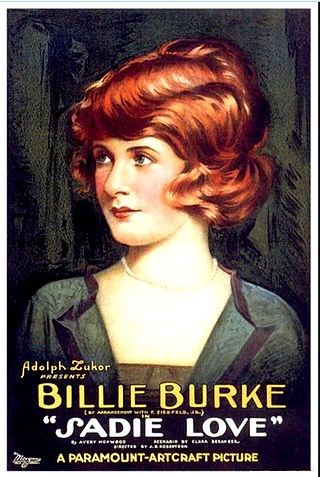
Sadie Love is a 1919 American silent comedy film distributed by Paramount Pictures and directed by John S. Robertson. It is based on a 1915 stage play of the same name by Avery Hopwood and stars Billie Burke in the title role. In the play, Marjorie Rambeau played the Burke part.

Lillian Lorraine was an American stage and screen actress of the 1910s and 1920s, and a prominent Ziegfeld Girl in the Broadway revues Ziegfeld Follies during the 1910s.
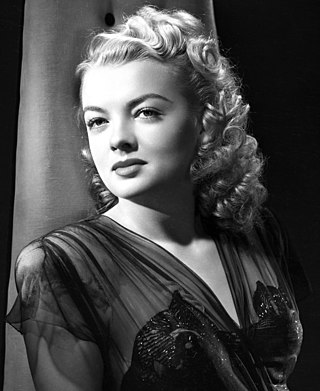
Myrna Dell was an American actress, model, and writer who appeared in numerous motion pictures and television programs over four decades. A Hollywood glamour girl in the early part of her career, she is best known today for her work in B-pictures, particularly film noir thrillers and Westerns.
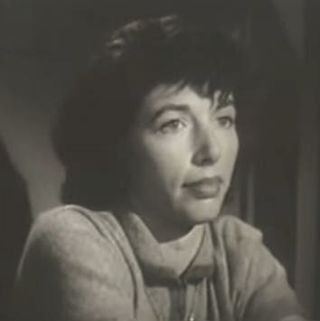
Peggy Webber is an American actress and writer who has worked in film, stage, television, and radio.

Norma Jean Nilsson is a former child actress in old-time radio and films.

Eleanor "Nellie" Souray, later styled as Eleanor Byng, Viscountess Torrington, was an English actress known for her roles in Edwardian musical comedies, pantomime and light opera.

Louise Emerald Bates was an American actress whose photo was covered in the 1915 issue of Motion Picture Classic. Born in Massachusetts, U.S, she left the stage and theater productions, where she starred in musical comedies, for Thanhouser's Falstaff comedies produced at its New Rochelle studio. She was a female lead in Falstaff comedies. In 1916 she worked at Thanhouser's studio in Jacksonville, Florida. where the Falstaff crew relocated. In 1916, actor Harris Gordon was noted as her husband. She married Edmund Mortimer and became Louise Bates Mortimer.



















